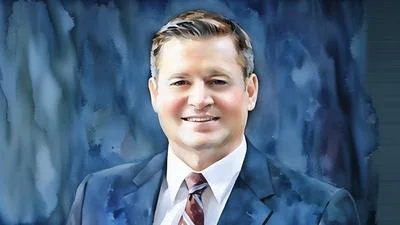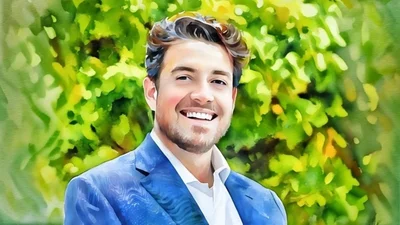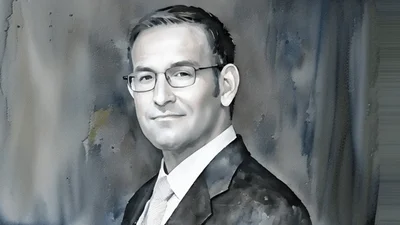Marc Joffe is a federalism and state policy analyst at the Cato Institute. He specializes in free speech issues.
Federal Newswire:
What led you to focus on free speech issues?
Marc Joffe:
It's something I've always been a believer in.
I'm old enough to remember the case of the ACLU defending the right of the Nazis to march through a Jewish neighborhood outside of Chicago called Skokie. It's just amazing how you couldn't imagine people on the left, including the ACLU, coming anywhere near that right now. I thought we've really got to think of another way of explaining why freedom of speech is important.
Federal Newswire:
With your beliefs, what was it like being an outlier at NYU and then San Francisco State University?
Marc Joffe:
At NYU, I got there at the time that President Carter re-instituted draft registration. So a lot of my work was around the anti-war [movement], and I had a lot of interaction with people on the left, including people on the hard left. There were three Trotskyist groups, the Socialist Workers Party, the Workers World Party and the Spartacus Youth League. They seemed to spend more time fighting each other than fighting capitalism, which I guess is a good thing.
One interesting thing that you might be surprised aboutis, when I decided to apply for the MPA program at San Francisco State University, I needed three letters of reference, all of which I got from Libertarians. I [told them], "Please do not mention that I'm a libertarian" because I figure they're probably not going to accept me into this program. I went through the whole program. I had a straight 4.0 average. I was sort of like the equivalent of the valedictorian of the class, all without ever admitting that I was a Libertarian.
I think one of my professors must've realized it because I asked for an internship at the Reason Foundation, but we never actually discussed my true identity.
But as time has gone on and I've continued to interact with professors there and fellow students, I have admitted what I believe. I found people were incredibly accepting and actually quite generous. I know they're far to the left of where I am, and yet I think once you get to know someone as a person, I think that changes things.
Federal Newswire:
Why do you think there's been an erosion of support for free speech on the left?
Marc Joffe:
How did the left veer off? Well, I think a lot of it is really well-intentioned. I look at it from a COVID framing. If you think something is right, and the alternative position could be dangerous and could result in people being physically harmed or discriminated against or whatever, I think there's an understandable tendency to want to stop that kind of communication.
I do think for a lot of people it comes from a good place. There are others who wear the mantle of the left and state some of its concepts who are really into maintaining and building power. For them, any kind of alternative speech is inconvenient.
But I don't think that's everybody and I think there are a lot of people on the left who just honestly think that, "Please shut up because you're hurting people by saying what you're saying."
Federal Newswire:
Some people view speech as a form of violence and violence as a form of speech. how does that compare with how we should view free speech in America?
Marc Joffe:
It reminds me of what I learned in school; “sticks and stones may break my bones, but names will never hurt me.” It does seem that's a baby boomer phrasing or baby boomer way of looking at things. It’s not sticking with the new generations that are coming up.
We have to get underneath that, and it does seem that there are gradations. There are things that are just incredibly abusive and hurtful, and then there are just statements of opinion that differ from your own. It does seem that there's a conflating of all of that so maybe we have to really understand the differences in types of speech and how some may be more hurtful than others.
Federal Newswire:
There have always been limits to free speech, such as you can talk about somebody but you can’t lie about them. Have we forgotten this limit or have the bounds been expanded?
Marc Joffe:
Another prism to look at is fraud. If I tell you a lie and that causes you to, say, make a bad investment decision and transfer a lot of your assets to me unknowingly, I've just spoken, but I've inflicted a loss on you. Trying to put myself in the head of people on the other side of this topic, I could imagine that someone could take the view that if we generally believe that a certain cure for COVID is not going to work, and yet I get on the media and proclaim how wonderful this particular treatment is, am I in a sense defrauding other people and harming them in that way? That strikes me as being a bit of a border case.
But then you get into cases where I simply state something that's demonstrably true. For example, vaccines don't prevent you from transmitting COVID, which was something that was never really denied. Even when Pfizer and Moderna did their tests, they admitted that they didn't test whether the vaccine prevented you from giving someone else COVID, and yet that became something that you weren't allowed to say.
I tend to think you have to err on the side of allowing more speech rather than less speech, and taking the risks associated with the more speech in that fraud example for example, because we just don't centrally know what the truth is.
That's where you get into some of these Austrian, Hayekian ideas that the economic process in our society is an evolutionary process where we're sort of struggling to figure out the truth, but nobody can get to the truth as quickly as you'd like.
So you also have to go through this experimentation process, hear ideas that don't ultimately pan out, but experiment with them until you get to the truth.
Federal Newswire:
If you silence somebody's opinion does it stop you from getting to the truth?
Marc Joffe:
Exactly. You slow down the evolutionary process of society.
Think about the evolutionary process. There are a lot of mutations that aren't fit and die out, but those were genetic ideas that failed. We don't know a priori which ideas are going to work, so we have to allow a broad range of expressions, whether they're genetic or speech expressions, to find out what the truth is.
Federal Newswire:
Isn’t it better for people to be able to express their views openly so we can know if they are good or bad?
Marc Joffe:
Yeah, although I think often you're disadvantaged by taking that position because it may be that you have something to learn from people on the other side. That's what really gets me nervous about people being in their media bubbles. They're simply restricted from hearing what the other side says, and so the truth doesn't seep in.
That was one of the things that I think differentiates, say, California from China. Both had a very strong public health response to COVID, and I think both would have preferred not to hear from the other side.
But in California, we had the right to protest. As early as May 1, 2020, we ran a protest in Sacramento in front of the state legislature saying, "Hey, end the lockdown", and Governor Newsom said, "This is terrible–this is spreading COVID, it's threatening public health." But they had it here, and ultimately he made the mistake [at the restaurant] French Laundry that caused the recall. To respond to the recall [and] to get that marginal voter, he had to relax the lockdown.
In China ... it was much, much harder for the other side to emerge. It was two and a half years in when you started having violent protests that they finally had to just give up on the lockdown.
This ability to use free speech and assemble and so forth, it's a safety valve. It lets steam be released more gradually as opposed to in a violent way, in an explosion.
Federal Newswire:
The First Amendment only applies to government censorship but should it cover more?
Marc Joffe:
Well, I guess it's the legal application of a broader idea, which is that there should be a marketplace of ideas where you don't feel that you're harmed by hearing different points of view. Instead you see what you can learn from hearing other points of view. So yes, I guess the First Amendment is not enough, but it's really been a huge bulwark for the United States versus other countries.
Federal Newswire:
How should we balance the First Amendment with rights of large private platforms that have become a quasi-public square?
Marc Joffe:
I have a pretty radical point of view. I do believe in the private property approach to this. If Meta wants to suppress me from putting up my content or limiting the distribution of that content, I do recognize that that's their right to do that.
A friend of mine asked me the other day, "So when are you setting up your Threads account?" and I said, "Well, I'm not, because I don't appreciate Meta's approach towards limiting speech and I don't want to vote for them with my time and talent.” I am going to stick with Twitter because that seems to be more of a free speech platform.
Hopefully I will spend more time as time goes on watching Rumble as opposed to other video platforms because that seems to have a less restrictive approach. I think the way you do it is you vote with your feet, but I can understand why people get frustrated with platforms that are censoring their content. I just think getting the government involved has a lot of unintended negative consequences.
Federal Newswire:
If free speech is under threat in America, where do you see it going?
Marc Joffe:
What I tried to do is make another argument for free speech, that it's just a basic human right to have free speech. If you don't accept that, are there other ways to think about free speech?
I'm trying to argue that there's a consequentialist argument, which is that not enough ideas are brought forward.
Policymakers don't get an array of views to choose from, and they make mistakes that are damaging to public health and the economy. I would think that that approach might resonate with some on the left. I would think that the vast majority won't like it.
In California, it does seem like we have passed the peak of suppression. There was a law that you might be aware of that passed in the last legislature that said if a doctor gives bad information to a patient, or veers off of accepted medical practice, that could be reason for being removed from the profession. That was put forward by a very aggressive former legislator now, Dr. Richard Pan, who termed out. But Newsom still signed it, and I think a court has stopped it.
Maybe there's a little bit more moderation or humility, at least I hope so, but we'll only know when the next emergency happens; and it does seem in this country every couple of years there's some kind of emergency that gets exploited to reduce our rights as Americans.
Federal Newswire:
How can we follow your work?
Marc Joffe:
Go to www.cato.org and you type my name Marc Joffe.








